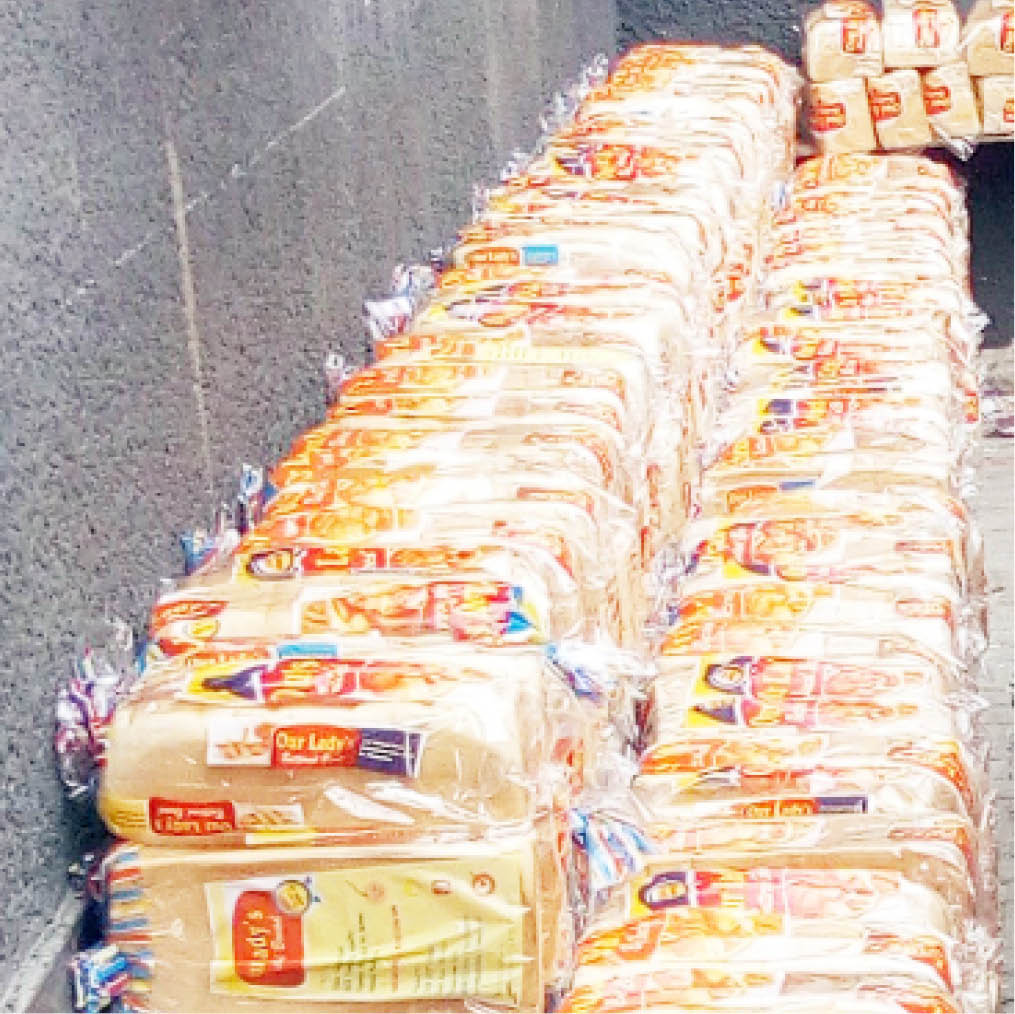Bread prices soar in Borno, bakers suggest use of cassava flour
Bread consumers in Maiduguri are reportedly groaning over the sudden increase in the prices of loaves of bread even as the size remains the same. Bread prices in Maiduguri, Borno State were increased by master bakers following an increase in the price of wheat flour and other baking ingredients. A retailer on Baga Road, Bukar […]

Loaves of bread ready for sale
Bread consumers in Maiduguri are reportedly groaning over the sudden increase in the prices of loaves of bread even as the size remains the same.
Bread prices in Maiduguri, Borno State were increased by master bakers following an increase in the price of wheat flour and other baking ingredients.
A retailer on Baga Road, Bukar Alhaji said even though the prices of bread loaves in the state have increased, the quantities supplied and demanded do not change.
“People are not happy with about the 20 per cent increase per loaf but they still buy as usual. This is because bread is an important food staple consumed by both the rich and the poor,” he said.
An apprentice with a bakery in Maiduguri, who pleaded for anonymity, also said the quality of bread produced in his bakery neither increased nor decreased even as wheat flour increases in price daily.
He said while bread price jumped over a couple of weeks, “people were left with no choice than to adjust their budgets and buy’’.
Meanwhile, former National Chairman, Association of Master Bakers and Caterers of Nigeria (AMBCN), Dominic D Tumba has given an insight into the causes of the price increase and the way out.
He said the price increase was discussed and approved by the association after failing to reach agreements with policy maker and producers of wheat flour and other ingredients.
“The association met on June 2 in Abuja over the increase in price of wheat flour and other ingredients. The price of flour, for instance, was raised three times within a short period in May. Our several letters to government have not been attended to. We resolved to increase the price of each loaf by 30 per cent. This is because the price of a bag of flour rose from N15,000 to N17,500, sugar from N16,000 to N19,500, margarine from N9,000 to N12,500 and yeast from N9,800 to N16,000. A trailer load of firewood rose from N350, 000 to N540, 000,” he said.
Mr Tumba said the Borno State Chapter of the association further met on the price increase and agreed that because of the devastating effects of poverty and unemployment caused by years of insurgency, it was not reasonable to raise price higher.
“We resolved to increase the price of bread by 10 per cent such that the loaf earlier sold for N100 will go for N110. But the retailers also complained of the rise in the price of polythene bags and further increased the price to N120.”
Tumber, who also deals in wheat flour, said the ban on the sale of forex on wheat importation even as Nigeria’s wheat does not contain the required starch in bread baking had pushed the prices higher.
He said most of the flour mills t that rely on imported wheat, are forced to source forex from the parallel market where exchange rate is not stable.
“The price will keep changing daily as the exchange rate rises,” he said.
He said the policy of the federal government of inclusion of 30 per cent cassava flour in bread by 2021 should be implemented to at least reduce import of wheat and achieve price stability.
He said: “Cassava is healthy in bread and abundant in Nigeria. If 30 per cent is included in bread as proposed by the government, wheat importation will reduce and local cassava farmers will generate more income. We have been trained in cassava bread baking but more training is needed for master bakers.”
In the meantime, a source at the Federal Ministry of Agriculture has said the authorities have initiated a policy of 20 per cent cassava flour inclusion for master bakers to reduce reliance on imported wheat.
